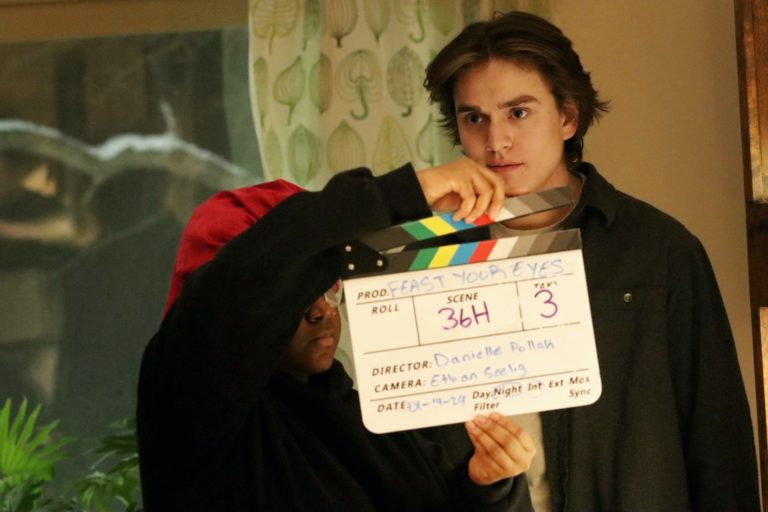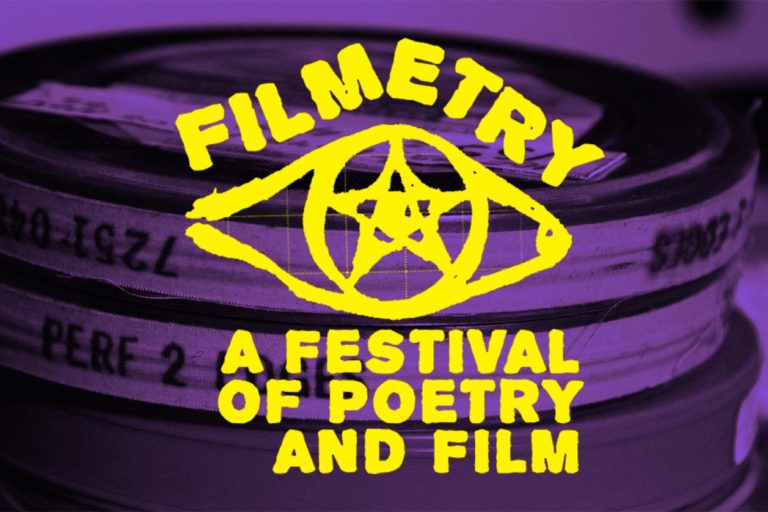Kaveh Askari, Associate Professor and Director of Michigan State University’s Film Studies Program, is the 2023 recipient of the prestigious Katherine Singer Kovács Book Award, presented by the Society for Cinema and Media Studies. He received the award for his new book, Relaying Cinema in Midcentury Iran: Material Cultures in Transit, published by the University of California Press.
“We assessed 100 submitted titles on far-ranging topics. It was a challenging task,” said Haidee Wasson, Professor in the Mel Hoppenheim School of Cinema at Concordia University, who chaired the committee for the award. “Among the many truly outstanding titles, [Kaveh Askari’s book] rose to the top of our list.”
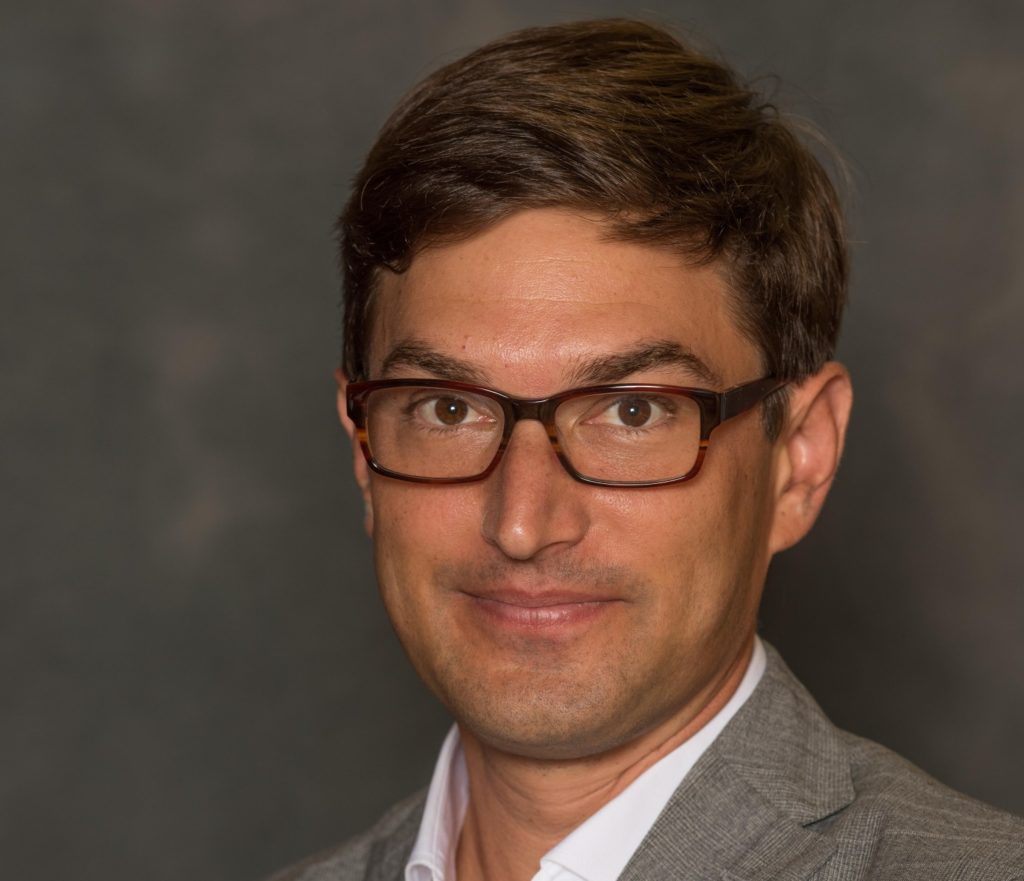
“Focused on mid-century Iranian cinema, Kaveh Askari’s book is an utterly surprising, inventive, page-turning delight. With clear, compelling prose, Relaying Cinema moves elegantly from particular to general, from archival anecdote to theoretical insight,” the Katherine Singer Kovács Book Award committee stated. “By focusing on the material forms and artifacts of cinema – film prints, billboards, posters, magazines, soundtracks – Askari maps a series of creative practices that adapted and ultimately reconstituted movies as they moved from one culture to another, one language to another, one creative industry to another.”
Askari was completing a postdoctoral fellowship at the University of California, Berkeley, in 2006 when he learned of a 1920s print run of an Iranian newspaper in the university’s special collections library. While going through the newspapers page by page, he identified episodes of American adventure serials with narrativized Persian translations that allowed him to track missing elements from the films.
“Focused on mid-century Iranian cinema, Kaveh Askari’s book is an utterly surprising, inventive, page-turning delight. With clear, compelling prose, Relaying Cinema moves elegantly from particular to general, from archival anecdote to theoretical insight.”
Katherine Singer Kovács Book Award committee
At the time, Askari was writing his first book, Making Movies into Art: Picture Craft from the Magic Lantern to Early Hollywood, which was later published in 2014 with the British Film Institute. The film advertisements in this Iranian newspaper gave him the inspiration to begin researching what would become Relaying Cinema in Midcentury Iran: Material Cultures in Transit, which is his second book and was published in January 2022.
The idea of utilizing archival material to trace how film serials were reshaped in transit became the premise of the first chapter of the book, with its subsequent chapters attempting to recreate the fragmented culture and history of the invisibility of Iranian cinema to distributors in the 1950s due to the country generating only 0.1% of revenue before the establishment of official distribution channels.
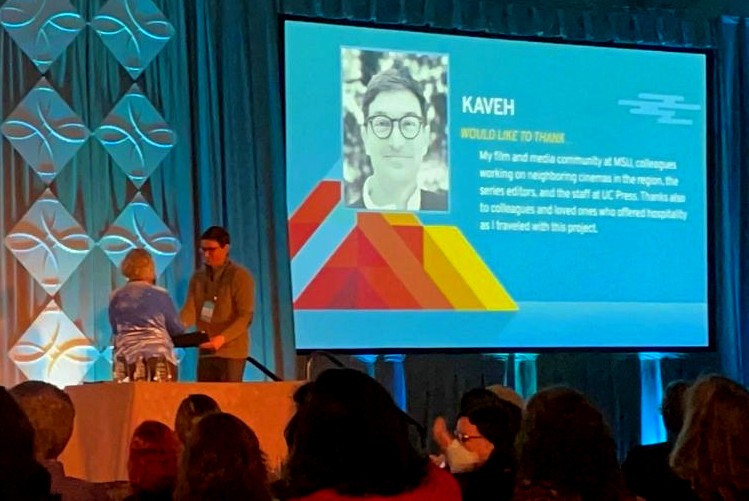
“Iranian films since the late 1980s are among the best known in the world of art cinema. However, the popular films made in Iran, especially before the 1970s, are not as well known,” Askari said. “I wanted to gain some traction with that period in cinema and media history. The goal was to track the circulation and production of films by comparing documents from multiple archives.”
Not only used in the book but in its title as well, the term “relay” is meant to express how a film print circulates through obstructions in Iran and beyond to get amplified or transformed, each stage of its circulation unaware of the next as it moves around the world. Askari decided on the term for the concept after competing in a relay race, noting how a participant handing off the baton will no longer be responsible for where it’s taken next.
“Iranian films since the late 1980s are among the best known in the world of art cinema. However, the popular films made in Iran, especially before the 1970s, are not as well known. I wanted to gain some traction with that period in cinema and media history.”
Kaveh Askari, Associate Professor and Director of the Film Studies Program
As a point of invisibility in the 1950s, Iran entered an era of wild experimentation due to a lack of enforcement monetizing the emerging film culture and policing the international copyright agreements. This creative freedom influenced the country into a “culture of remix” complete with an affordable, new dubbing technology that consisted of recording on magnetic sound stripes and gluing them onto the film print. Alternatively, the risk associated with buying and circulating film prints often resulted in many being destroyed if the cost of returning or maintaining the print was higher than the cost of the print itself. Through the process of relay, these examples demonstrate the amplification or transformation of film access in Iran as it shapes the experience of the film culture and the experience of individual films.
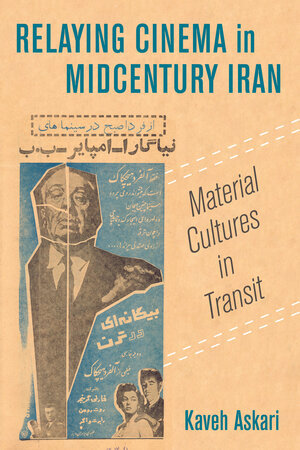
“In a pre-digital era, Askari shows us the determined modularity and malleability of analog forms which helped to seed the transformation of Hollywood and other foreign films as they circulated in Iran, seeding the rise of a vibrant and distinct Iranian media practice,” the Katherine Singer Kovács Book Award committee stated. “Through junk film prints, found sound collages, graphic design, title sequences — a little bit of legal subterfuge – as well as practices of maintenance and repair, we learn about the determined multi-medial morphologies of film prints and ultimately of ‘the movies’ at midcentury.”
The work on the book required extensive archival research in the United States and Iran where Askari spent several months in film company collections in Los Angeles; Madison, Wisconsin; and Austin, Texas. While researching the book, he also made a few trips to Iran for several weeks at a time and had the opportunity to explore the very film culture that his father lived through.
“This is a book that rewards its reader with every turn of the page. It is a model of engaged, inviting, impactful scholarship.”
Katherine Singer Kovács Book Award committee
“This is a book that is transnational, transmedial, and transhistorical, providing vital insights into a distinct national context but also reshaping our understanding of all historical studies of cinema-in-relay – that is, movies that move,” the Katherine Singer Kovács Book Award committee stated. “In addition to studies of the Middle East, this book will be especially important for those invested in Transnational Studies, Production/Industry Studies, Sound Studies, Technology Studies, Digital Media Studies, Early Cinema Studies, and Classical Hollywood Studies. This is a book that rewards its reader with every turn of the page. It is a model of engaged, inviting, impactful scholarship.”
Askari was presented with the Katherine Singer Kovács Book Award on April 13 at the 2023 annual conference for the Society for Cinema and Media Studies in Denver, Colorado.
Passing on the love of film to a new generation, Askari engages in his own process of relay by sharing his research findings to classrooms of students every day and with colleagues working in film and media.
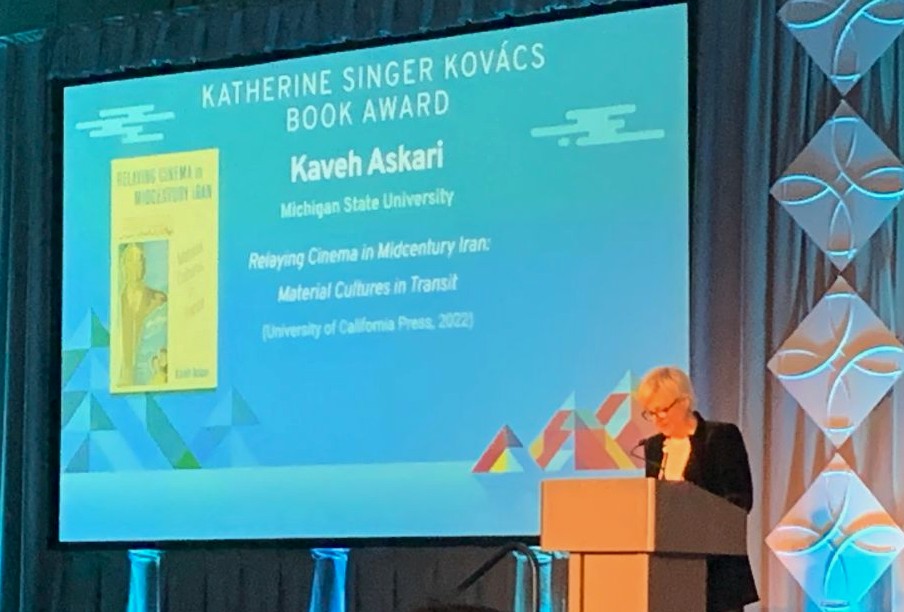
“You never know where a project is going to land,” Askari said. “There have been some great conversations with colleagues at book talks over the past year and I’m grateful for a supportive film and media community here and abroad.”
Askari already is thinking of other book projects and admits he still has a lot of work he would like to do in the field of cinema research.
“There were so many threads that I did not have an opportunity to pursue with this book. I am looking forward to following those in the coming years,” he said. “I would like to look at film circulation through regional nodes around the Persian Gulf and Indian Ocean. I also became really excited about sound technology with this book and would like to grow the questions that formed around global cinema’s sonic environments.”
The Katherine Singer Kovács Book Award honors the memory of USC Professor Katherine Singer Kovács and is given each year to an outstanding book published in the field of cinema and media studies.
